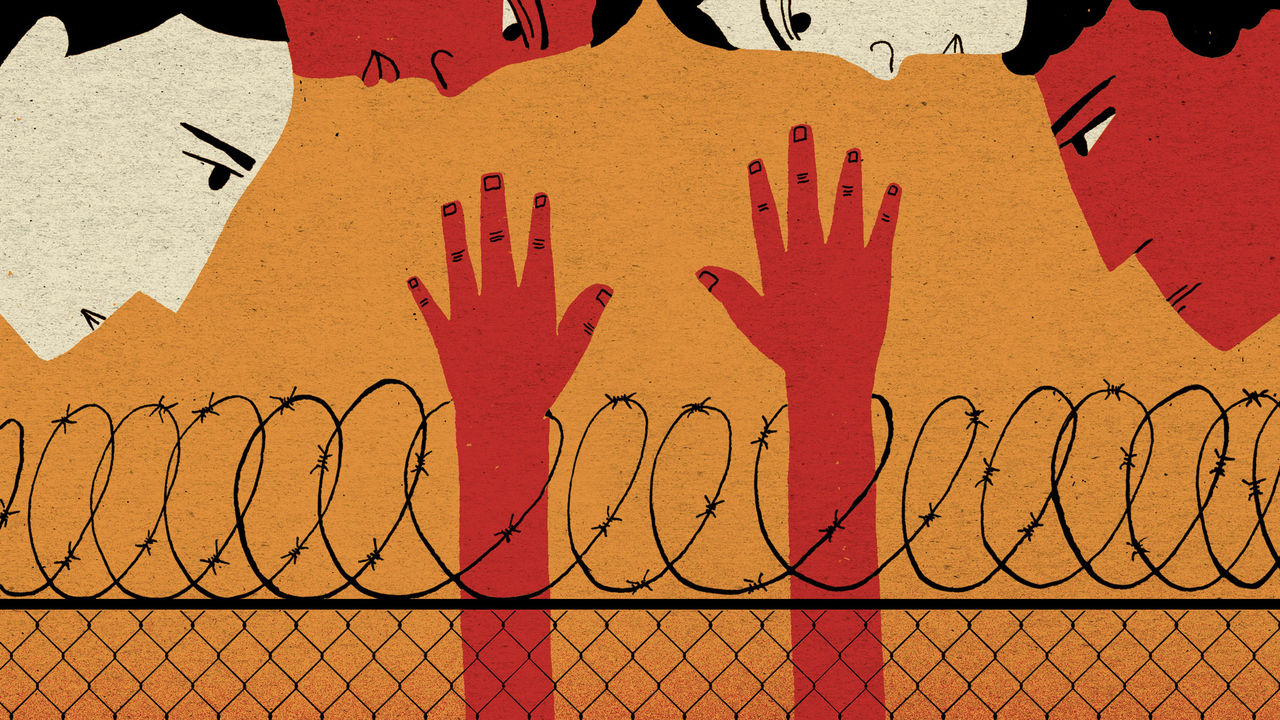The West Begins To Stir Over China’s Massive Abuse Of Muslims

 The Economist Few governments send ambassadors to China to be brave about human rights. Envoys to Beijing are scholars of realism, their fine minds applied to a delicate task: managing profitable relations with a deep-pocketed, unapologetic dictatorship.
The Economist Few governments send ambassadors to China to be brave about human rights. Envoys to Beijing are scholars of realism, their fine minds applied to a delicate task: managing profitable relations with a deep-pocketed, unapologetic dictatorship.
It is, therefore, a big deal that at least 14 ambassadors from Western countries, led by Canada, have come together to confront China over its mass detentions of Muslims in the far-western region of Xinjiang, most of them ethnic Uighurs. Officials say the purpose is to stamp out extremism. In a letter leaked to Reuters, a news agency, the ambassadors have asked to meet Chen Quanguo, the Communist Party’s boss in Xinjiang. A hardliner transferred from Tibet, Mr Chen oversees a gulag into which perhaps a million Uighurs have been sent for “transformation-through-
Millions more endure surveillance by facial-recognition cameras, smartphone scanners and police patrols at every turn. Some must host officials as houseguests, sent to assess their loyalties. China calls these measures vital after terrorist attacks carried out in recent years by Uighur fanatics.
It is revealing that China seems startled to find itself under ambassadorial scrutiny. It has some reason to be. Chinese officials cynically believe—and will say in private—that Western leaders and envoys raise human rights out of a sense of reluctant obligation, in order to placate activists and public opinion back home. This time, however, the charge is being led by ambassadors, not the public. Envoys in Beijing admit that most people in their countries have never heard of Xinjiang or the Uighurs. They also concede that some folk back home might have mixed feelings were they to learn that the Uighurs stand accused of terrorist leanings.
Protesting Muslim bans, wherever they are found
Xinjiang’s agonies are hardly a vital national interest for the first countries to sign the draft letter—Australia, Belgium, Britain, Canada, Denmark, Estonia, Finland, France, Germany, Ireland, the Netherlands, Norway, Sweden and Switzerland, joined by the European Union. Instead, a Western diplomat sees a stark test of principle, asking: if we do not protest when a million people are detained without trial, when will we speak out?
That points to another reason for China to be startled. It is years since human rights seriously disrupted Chinese foreign policy. China won a big victory in 1994 when America’s then president, Bill Clinton, abandoned his previous commitment to make China’s access to American markets conditional on its human-rights record. “We have reached the end of the usefulness of that policy,” Mr Clinton mumbled, before expressing hopes that China would be changed by engagement with the world. For reasons both selfish and noble, other governments fell in line behind that same plan: a bet that a prosperous China would surely converge with an international order crafted by Western powers after the second world war, based on global trade, universal rights and the rule of law.
China has not converged. In the meantime, the post-war rules-based order has rarely felt so fragile, thanks in part to the election of populists such as President Donald Trump. That fragility explains why once-meek governments are finding their voices. It is why Xinjiang crashed onto the agenda of the Stockholm China Forum, a twice-yearly gathering of American, Chinese and European ambassadors, diplomats, scholars, politicians and business leaders, hosted recently by Sweden’s foreign ministry and the German Marshall Fund of the United States, a think-tank. A speaker predicted that Xinjiang’s woes would “explode in public opinion”.
Normally dispassionate, the forum saw sharp exchanges about Xinjiang. Speakers described hearings in Washington at which farm-state senators, who once cheered trade with China, used phrases like “Orwellian” and “concentration camps”. It was noted that China’s high-tech police state appals Europeans, who dread government surveillance, especially in Germany. Defenders of China accused the West of hypocrisy, saying: “This is not Guantánamo.” (True: there are only 40 inmates in Guantánamo.)
To be sure, the West is not united over how to defend the rules-based order. EU signatories to the ambassadors’ letter are mostly from northern Europe. From the China-led “16 plus one” grouping of former communist countries in Europe, the only signatory at the time of publication was Estonia. Australia, a big exporter to China, signed. New Zealand, another big exporter, did not.
America’s position is hard to predict. In a recent China-pounding speech, Vice-President Mike Pence was stern about Xinjiang. A bipartisan group of members of Congress wants Chinese officials to face sanctions under the Global Magnitsky Act, a law targeting human-rights abusers. But America’s envoy in Beijing did not sign the Canadian-drafted letter. Nobody can guarantee that Mr Trump will uphold his government’s line when he sees his counterpart, Xi Jinping, later this month at a G20 meeting in Argentina, rather than beam that China is smart to be tough on Muslim terrorists.
The wider world is not united. Turkey, which feels bonds of kinship with Uighurs, a Turkic people, was the only Muslim country to rebuke China at a recent meeting of the UN Human Rights Council in Geneva. Other Muslim countries, many of them recipients of Chinese loans, praised China’s human rights.
Global argument over Xinjiang is likely to get fiercer. Horrible things are happening. International investors are growing jumpy about stakes in firms selling security kit used there. It matters that China’s talking points are outrageously cynical. Chinese lines tested in Stockholm include the claim that the camps protect the rights of Uighurs raised in remote, mainly Muslim areas. The camps offer modern employment skills, it was explained, and the right—guaranteed in China’s constitution—to choose your own religion or to believe in none. More propaganda like that, and ambassadors will not be the only ones asking hard questions.

